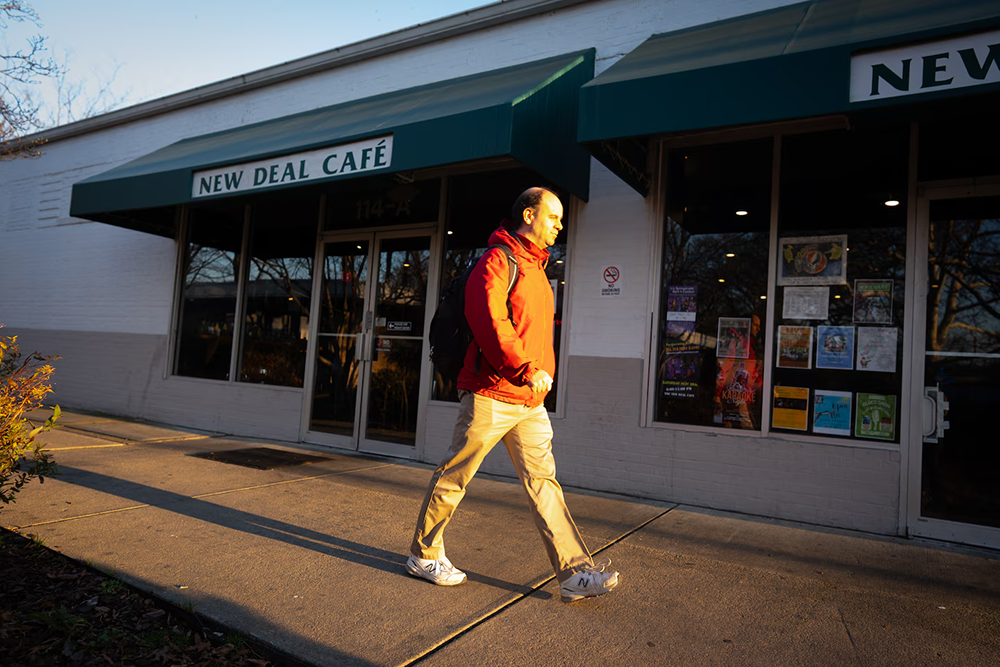
The column below distills remarks by NCBA CLUSA president and CEO Doug O’Brien and Esteban Kelly, outgoing chair of the association’s Board of Directors, delivered at our 2025 Annual Membership Meeting on May 6.
As engines of opportunity and harbors of resilience, cooperatives provide people with the chance to meaningfully participate in the economy through businesses they own, control and benefit from. In 2025, as we celebrate the Year of Cooperatives and navigate a political and economic landscape in turmoil, the power and potential of cooperatives comes into even sharper focus.
Despite the tremendous record of cooperatives, much of the policy infrastructure supporting co-ops is under attack right now. Big banks are asking Congress to change the credit union tax status in a way that would hobble people’s ability to own and benefit from their own financial institutions. Meanwhile, funding for domestic and international cooperative development is at risk—funding that is critical to new and emerging cooperators here and across the globe.
Shifting federal policies not only threaten cooperative programs; these actions have directly impacted NCBA CLUSA. As our members know, we have partnered with the U.S. Agency for International Development (USAID) since 1962 to support people in developing regions through cooperative and community-led development.
Our development work in 2024—including the launch of several new projects—laid the foundation for unprecedented impact during the Year of Cooperatives. One project in Ecuador was poised to transform ocean-bound plastics into the building blocks of affordable housing while creating jobs, business opportunities and protecting the fragile ecosystem of the Galapagos Islands. We began 2025 with 10 cooperative agreements with USAID that comprised about half of our total income. Those projects have since been terminated—abruptly erasing a huge part of our work and revenue.
As we celebrate the Year of Cooperatives and navigate a political and economic landscape in turmoil, the power and potential of cooperatives comes into even sharper focus.
That blow prompted an immediate pivot in how we think about our development work and what sources of funding we pursue. Our Innovation Response Team, created in February to diversify our revenue streams, is exploring new opportunities and relationships as the funding and policy landscape evolves.
Cuts in federal funding have also meant we’ve refocused on our core reason to exist: to serve our members by developing, advancing and protecting co-ops. We are doubling down on our advocacy work. We are fighting shoulder-to-shoulder with the co-op community on tax issues such as section 199A and, crucially, defending the credit union tax status. Check out America’s Credit Union’s Don’t Tax My Credit Union campaign to join in the fight. We’re also raising the co-op flag in the offices of Congressional appropriators so that as they allocate federal dollars, they understand why investing in cooperative development here in the U.S. and internationally is smart and strategic.
At the same time, we’re working closely with the cooperative community to preserve the Rural Cooperative Development Grant (RCDG) program at the USDA—the only federally-funded program dedicated to advancing cooperative businesses. Earlier this month, we met with senior USDA officials advising the Secretary on programs that support and expand the cooperative business model in rural economies, energy, food systems and market expansion.
In a tumultuous policy environment, cooperatives are more important than ever. Elected leaders from 193 national governments at the UN declared 2025 the Year of Cooperatives because they know that co-ops are one of the best tools people have to capture economic opportunity and create positive change at home and around the world.
Everyday Americans recognize the power of cooperatives, too. In our recent national survey, we learned that 75 percent of respondents say co-ops keep dollars in their local communities and contribute to economic stability and resilience. In fact, more than twice as many people say cooperatives “have the best interests of their customers in mind” when compared to for-profit corporations.
Alongside our members and the rest of the cooperative community, we’re working to remind lawmakers that co-ops have made it possible for generations of Americans to capture economic opportunities and access markets. We invite you to join in that work to sustain and grow the cooperative ecosystem.
Here are three actions you can take right now to support our cooperative future
- ADVOCATE for policies that support people’s ability to develop and grow cooperatives. Invite your elected officials to visit your cooperative, or work with your city officials to pass a Year of Cooperatives resolution. Tell Congress, ‘Don’t tax my credit union.’ You can find talking points and key messages in our Cooperative Business Playbook and Co-op Impact Report.
- INVEST in the cooperative ecosystem. That means doing business at your local co-op, managing your finances at a credit union or other co-op financial institution, and supporting your local, state or national co-op association. One way you can make a difference is by giving to NCBA’s Sustain and Grow Campaign.
- LEVERAGE THE POWER OF P6 This year, let’s galvanize our potential for growth and impact by making new cooperative connections. One important way you can connect is by joining cooperative networks and associations—whether they represent your industry (like the U.S. Federation of Worker Cooperatives), region or cooperatives across sectors (like NCBA CLUSA). Tap into their advocacy and public awareness efforts and engage in calls to action as we all navigate uncertainty.
All three of these calls to action interlink, creating a cohesive power-building strategy. When we speak with one voice in support of co-op-friendly legislation, when we all invest our financial resources in the cooperative community—from sponsorship and grants to contracts and procurement, membership and dues—we make a greater impact.
As the co-op community celebrates the Year of the Cooperative, now is the time for us to come together to advocate for and invest in the future of cooperatives. NCBA CLUSA stands ready to work alongside the entire cooperative community to ensure more people can use co-ops to build a better world—this year, and in the years to come.


